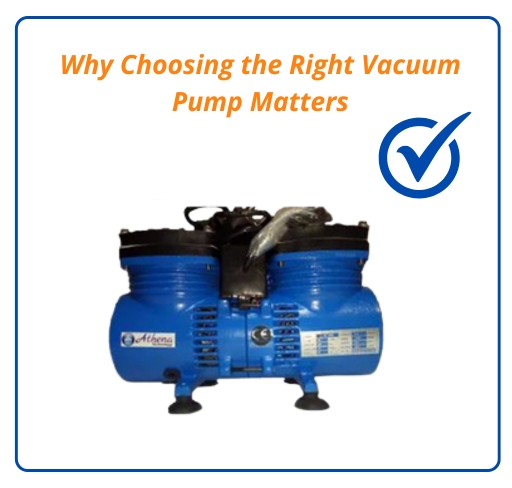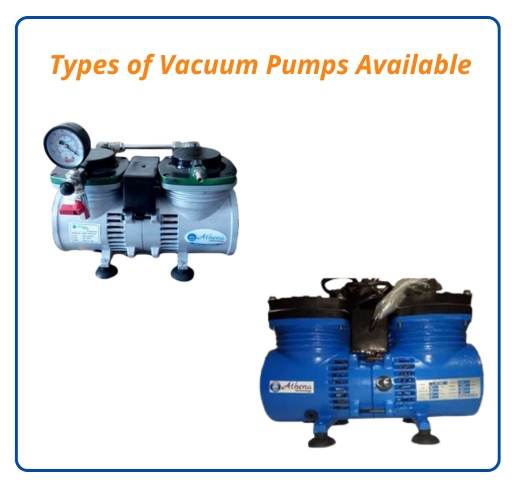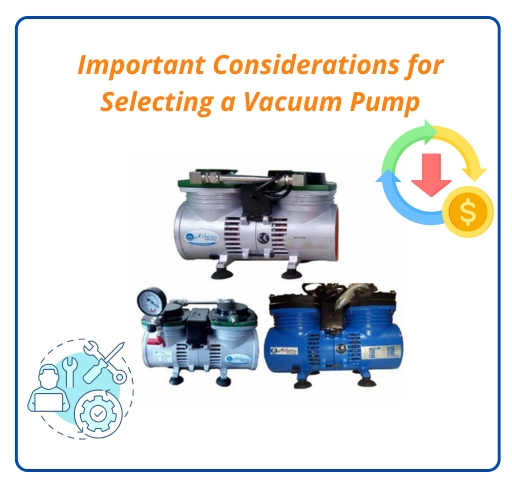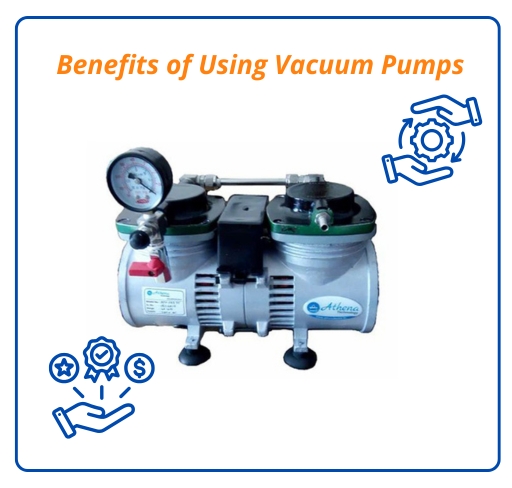When working with laboratory equipment, choosing the right vacuum pump can influence both accuracy and efficiency. Whether you’re running a small lab setup or a more complex research unit, selecting the right pump type affects how well your instruments perform and how much maintenance is needed over time. This guide breaks down the most important factors to help you make a well-informed decision.
Understanding the Use of Vacuum Pumps in Laboratories
Vacuum pumps are essential components in laboratory settings. From distillation to filtration, vacuum pumps help maintain low-pressure conditions vital for experiments and production tasks. They are used in:
- Rotary evaporators
- Vacuum filtration units
- Freeze-drying equipment
- Vacuum ovens
The use of vacuum pumps in labs is widespread because they allow chemical reactions and procedures to occur at reduced pressure levels, improving precision and safety.
Why Choosing the Right Vacuum Pump Matters

Making the right choice in vacuum pumps saves time, prevents contamination, and extends the life of your lab instruments. Using the incorrect pump may cause sensitive items to be damaged, oil to get contaminated, or pressure to fluctuate.
For example, in chemical labs, the wrong type of pump might not handle corrosive vapours properly. Similarly, biological laboratories often require oil-free pumps to prevent contamination.
Types of Vacuum Pumps Available

There are various types of vacuum pumps. Your choice will depend on the process needs, chemical compatibility, and the vacuum level required.
1. Oil-Free Vacuum Pumps
These pumps are ideal for cleanroom environments, biological labs, and sensitive analytical equipment. They reduce maintenance needs and eliminate the risk of oil vapour contamination.
Common benefits:
- Low maintenance
- Clean operation
- Long-term cost efficiency
For these kinds of uses, Athena Technology provides a selection of oil-free vacuum pumps.
2. Rotary Vane Pumps
These pumps use oil to lubricate moving parts. They are powerful but require regular maintenance. The ideal uses for them are those that can withstand oil vapours.
3. Diaphragm Pumps
They are corrosion-resistant and don’t require oil, making them popular in chemical and analytical labs.
Important Considerations for Selecting a Vacuum Pump

There is no single pump suitable for every lab. Here’s what you should look into:
1. Application Requirement
Identify your process: Is it evaporation, filtration, or drying? Each task may demand a different vacuum level.
2. Vacuum Level and Flow Rate
Check the required vacuum depth (in mbar) and flow rate. Using a pump with the correct specifications prevents delays and keeps instruments running properly.
3. Chemical Compatibility
If your work involves corrosive chemicals or vapours, select a corrosion-resistant pump like PTFE-coated diaphragm pumps.
4. Maintenance Needs
Oil-free pumps like those from Athena Technology are preferred for their ease of upkeep. They help laboratories focus more on their work and less on equipment servicing.
5. Noise and Heat Output
In shared lab environments, quieter and cooler-running pumps help maintain a comfortable work setting.
6. Budget and Operating Cost
Think about not just the purchase price but long-term operating costs. Oil-free models often offer better returns over time due to fewer service needs.
Benefits of Using Vacuum Pumps

Vacuum pumps play an essential role in maintaining smooth laboratory operations. When selected thoughtfully, they contribute to both safety and performance in lab environments. Here are some practical benefits:
- Oil-free designs offer cleaner operation with minimal contamination risk
- Reduced maintenance requirements, saving time and operational costs
- Quiet performance, ideal for shared lab spaces
- Corrosion-resistant materials suitable for chemical handling
- Consistent vacuum output, supporting accurate results
- Long operating life reduces the need for frequent replacements.
- Compatible with a wide range of lab instruments, from evaporators to dryers
Athena Technology offers a reliable range of vacuum pumps designed to support chemistry, biology, and pharmaceutical labs across India. Their products are backed by local service support for ease of maintenance and quick assistance.
FAQs
Q1: What’s the difference between oil-free and oil-based vacuum pumps?
Answer: Oil-free pumps are cleaner and require less maintenance, making them ideal for sensitive lab work. Oil-based ones may offer higher vacuum levels but need more servicing.
Q2: How do I know which vacuum level I need?
Answer: Check your equipment manual. Most manufacturers mention the vacuum depth that is required for optimal performance.
Q3: Are Athena Technology vacuum pumps suitable for chemistry labs?
Answer: Yes. Their oil-free diaphragm pumps are well-suited for chemical vapours and provide stable operation for lab setups.
Q4: Can vacuum pumps be used continuously?
Answer: Yes, but it depends on the model. Look for pumps designed for continuous use if your application demands it.
Q5: What type of maintenance do vacuum pumps need?
Answer: Oil pumps need oil changes and filter replacements. Oil-free pumps like those from Athena Technology need less frequent servicing.
Conclusion
Choosing the right vacuum pump is essential for efficient lab operations. From filtration to evaporation, having a reliable, low-maintenance pump supports cleaner results and better workflows. For Indian laboratories looking for reliable lab instruments and vacuum pumps, Athena Technology offers solutions trusted by professionals.
Visit Athena Technology’s product range and choose a pump that fits your lab needs today.



